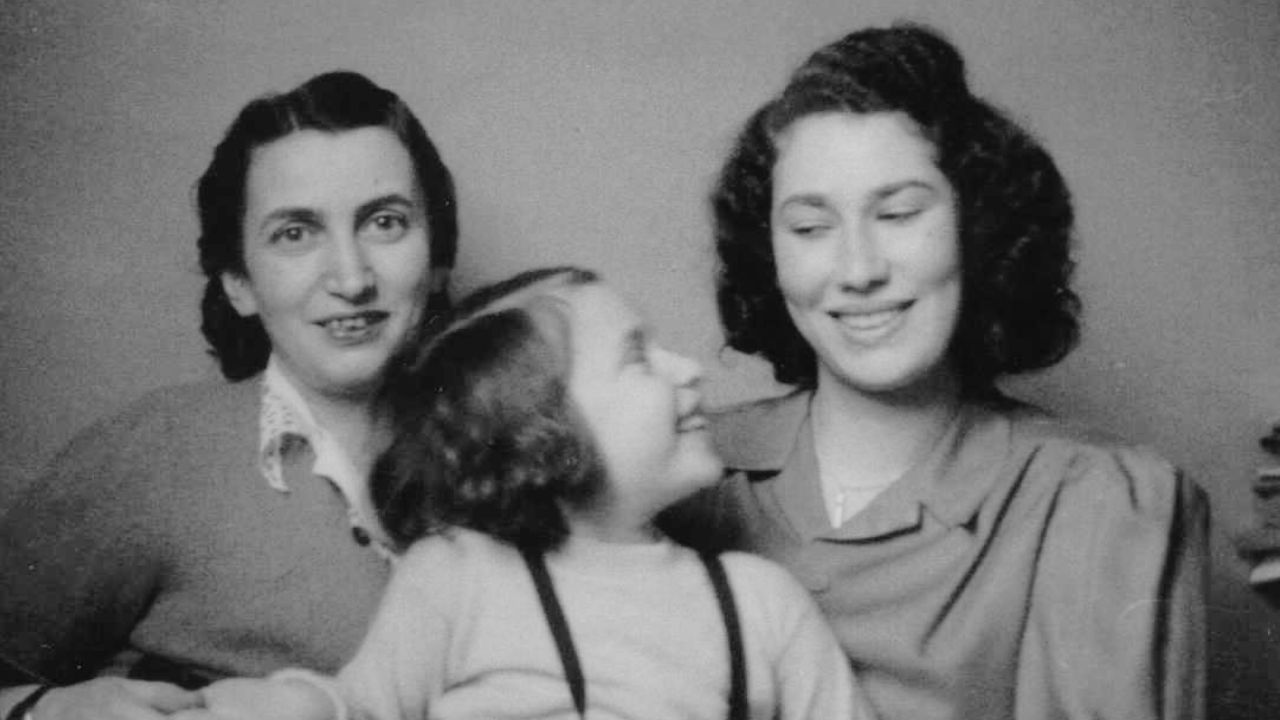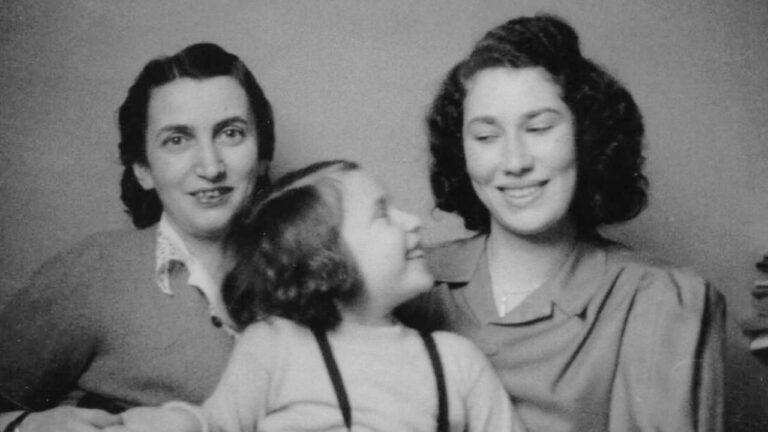When we look back at the pages of history, we encounter many unsung heroes and heroines whose stories are equally gripping and inspiring as their more famous counterparts. Gabi Goslar is one such individual, whose life, fraught with trials and tribulations, paints a picture of resilience and survival.
As the younger sister of Hannah Pick-Goslar, a close friend of Anne Frank, Gabi’s story navigates through one of the darkest periods in human history – the Holocaust. However, it’s a tale that speaks of survival against the odds, the power of resilience, and the strength of the human spirit.
Early Life and Family Background
Gabi Goslar was born in 1930 in the bustling city of Berlin, Germany. She was the younger child of Hans Goslar and Ruth Judith Klee. Her sister, Hannah Elisabeth Goslar, is well-known as a Holocaust survivor and a close friend of Anne Frank.
The Goslar family, rooted in Jewish traditions, provided a nurturing environment for the two sisters. Despite the challenging circumstances of the time, Gabi and Hannah grew up surrounded by the love and warmth of their parents.
The Impact of World War II on the Goslar Family
With the onset of World War II, the lives of the Goslar family, like countless other Jewish families, were turned upside down. The dark clouds of war and the rising tide of anti-Semitism drastically altered their peaceful existence.
Gabi, along with her sister Hannah, were among the unfortunate millions who were caught in the crossfires of this global conflict. The horrors and atrocities they had to endure as young girls are unimaginable.
The Goslar family’s world was shattered when they were swept up in the wave of the Holocaust. Gabi and Hannah were the only members of their family who managed to survive the terror of the Bergen-Belsen concentration camp. Their survival was nothing short of a miracle, considering the extremely harsh conditions and the high mortality rate in the camp.
The experience of the war left an indelible mark on Gabi. It was a time of immense suffering and loss, yet it also shaped her into a resilient survivor, a testament to the unyielding human spirit.
The story of Gabi Goslar is a poignant reminder of the horrors of war. Yet, it’s also a testament to the will to survive and the power of resilience. The tale of her survival, along with her sister Hannah, is one that needs to be told and remembered. As we delve into Gabi’s life, we get a glimpse of the strength and determination that defined her and her sister’s survival during one of the darkest chapters in human history.
Life in Bergen-Belsen Concentration Camp
When the war escalated, Gabi Goslar and her family were forced into the notorious Bergen-Belsen concentration camp. It was a place of unspeakable horrors, where innocent lives were snuffed out in the blink of an eye.

The sisters Gabi and Hannah found themselves in the midst of this hellish nightmare, experiencing firsthand the cruelty and inhumanity that marked this dark chapter in history. Their family was torn apart, as they were the only two members who managed to survive the horrifying conditions of the camp.
Life in Bergen-Belsen was a daily struggle for survival. Each day brought with it a new set of challenges, from battling hunger and disease to enduring the brutal and inhumane treatment meted out by the camp guards. Yet, it was in these dire circumstances that the strength and resilience of Gabi and Hannah shone through.
Liberation and the Journey to Recovery
After enduring 14 long months in the camp, liberation finally arrived for Gabi and Hannah in April 1945. However, the scars of their experiences ran deep. They were severely malnourished and ill, their bodies bearing the physical toll of the atrocities they had witnessed and experienced.
Following their release, the sisters were hospitalized in Amsterdam. It was a long road to recovery, both physically and emotionally. Despite the trauma they had faced, they held onto hope, their indomitable spirits helping them navigate the path to healing.
After their hospitalization, they were sent to Switzerland, a neutral country during the war, to recuperate further. It was a time of healing and coming to terms with their experiences. For Gabi and Hannah, it was also a time to rebuild their lives, to pick up the pieces and move forward.
Emigration to Israel and New Beginnings
In 1947, the Goslar sisters took a significant step towards starting anew – they emigrated to what was then the British Mandate Palestine, soon to become the State of Israel. The young nation represented hope and a fresh start for the Holocaust survivors, a place where they could finally live in peace.
The move to Israel marked a new chapter in Gabi’s life. It was an opportunity to leave behind the painful memories of the past and look towards a future filled with promise and potential. For Gabi and Hannah, it was a chance to rebuild their lives in a land that offered them a sense of belonging and security.
Life in Israel was not without its challenges, but it also brought with it opportunities and a sense of community. Gabi, along with her sister Hannah, found solace in their new home, as they began to carve out a life for themselves in the young nation.
Gabi Goslar’s Life in Israel
After the harrowing experiences of the war, Gabi Goslar moved to Israel, a nascent nation that represented hope and a fresh start for her and her sister Hannah. It was a time of new beginnings, a chance to rebuild and heal.
Leaving behind the painful memories of the past wasn’t easy. However, their new life in Israel offered them a sense of community, belonging, and security. It was an opportunity to start again, to carve out a life free from the dread and fear that had marked their childhood.
There is limited information about Gabi’s life in Israel, but what we know indicates that she led a quiet, peaceful life, far removed from the horrors of her past. She was a part of a close-knit family, which included her sister Hannah and her family. Together, they found solace and strength in each other.
Legacy and Remembrance
Gabi Goslar may not be as well-known as her sister Hannah, but her life story is no less remarkable. Her survival against all odds, her resilience in the face of unimaginable horrors, and her ability to rebuild her life after the war serve as a beacon of hope and a testament to the strength of the human spirit.
Her journey from a young girl in Germany to a Holocaust survivor is a story of resilience, courage, and determination. While her life was marked by unimaginable hardship, her legacy is one of survival and hope.
She passed away in 2017, but her memory lives on. Her story serves as a poignant reminder of the horrors of the Holocaust, but also of the capacity of the human spirit to endure and overcome.
The Bond Between Gabi and Hannah Pick-Goslar
The bond between Gabi and her sister Hannah was a source of strength and comfort for them both. They were each other’s pillars of support, their bond fortified by shared experiences and the trials they had endured together.
They were more than just sisters – they were survivors, their shared history a testament to their unyielding resilience. Their bond was a beacon of hope in the face of adversity, a symbol of the enduring human spirit.
Despite the trials and tribulations they faced, they remained strong and resilient. Their story is a powerful reminder of the strength of human bonds and the power of hope in the darkest of times.


